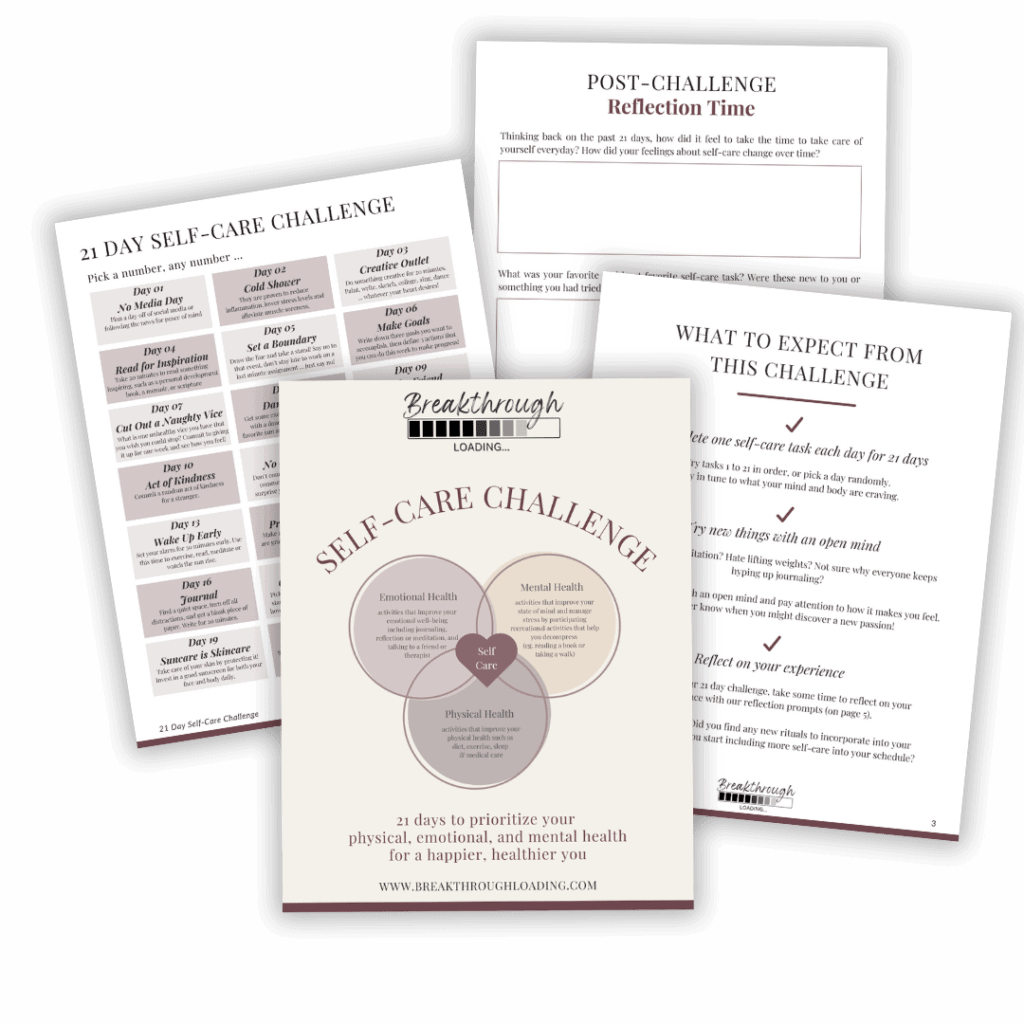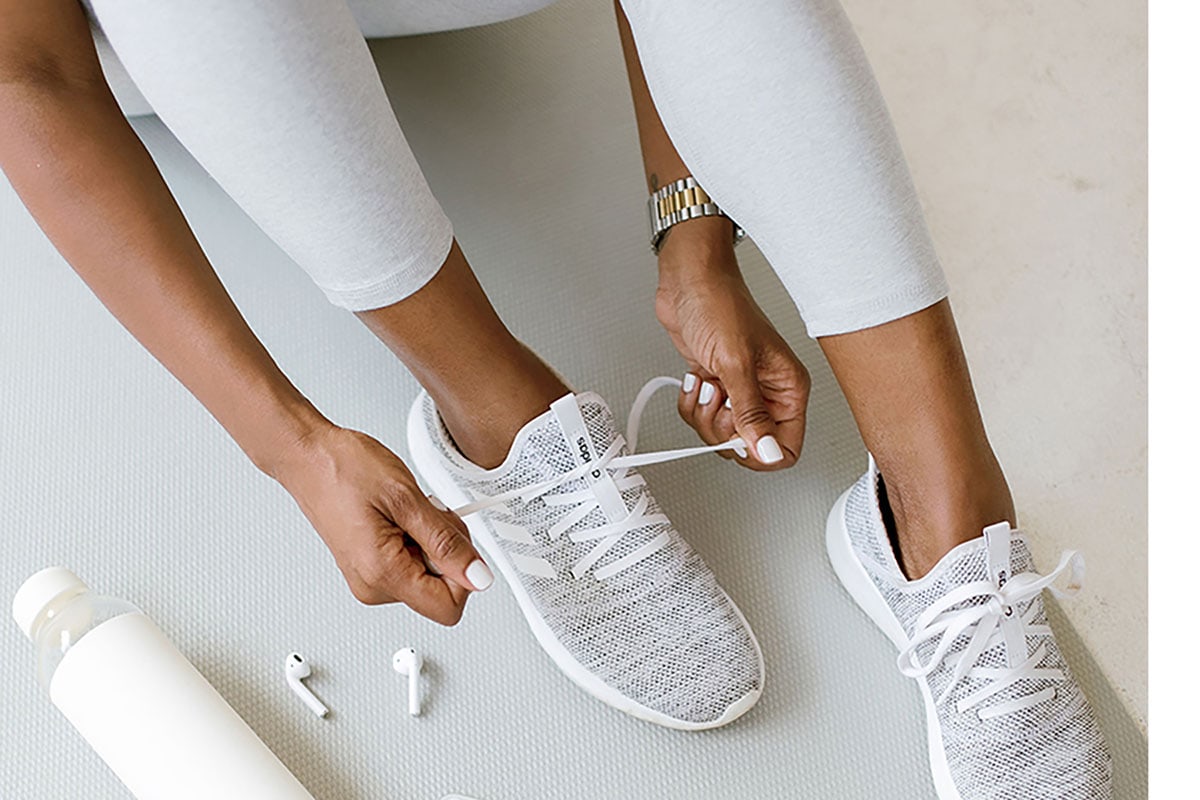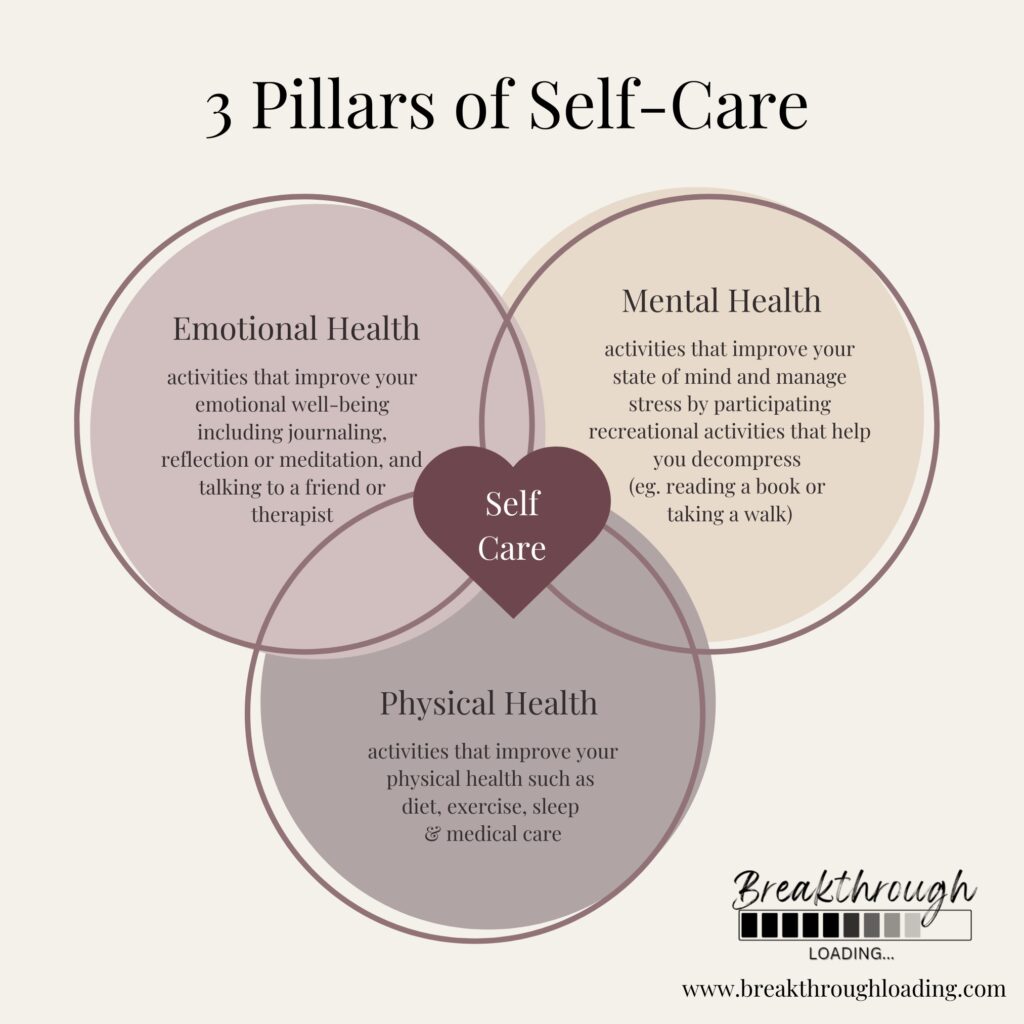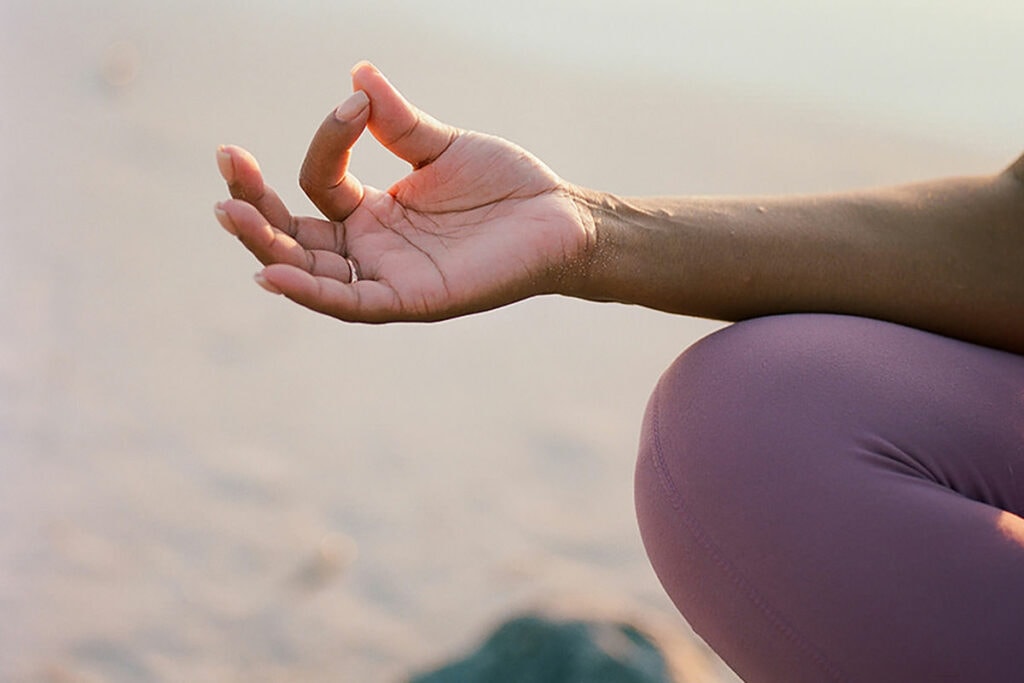Self-care isn’t selfish: The true definition and why it’s so important
What does the term “self-care” mean to you? In recent years, the concept of self-care has shifted from its original roots (“the care of oneself”) to mean something more indulgent and frivolous. We can all thank the marketing masterminds out there for using the self-care movement as an opportunity to capitalize on society’s consumerist tendencies. But I am here to tell you: Self-care isn’t selfish.
Maybe you think of your at-home facial and Netflix nights. Perhaps you imagine a luxurious spa day where you wear a fluffy robe and sport cucumbers on your eyes. Something along those lines?

As stress prevention and mental health awareness have become increasingly relevant over the past decade, we’ve started to see this trendy buzzword pop up in our daily conversations and feeds more often. But while researching self-care for an article, I was surprised to learn the true objective of self-care is vastly different from the fancy skincare routines and ambient candlelit baths touted in our favorite brand advertisements and the media.
Self-care isn’t selfish, it’s so much more than pampering, and it’s crucial to manage your overall health. Once you understand the actual intent and definition of self-care, it will feel much more important to incorporate this lifestyle into your daily routine.
What is self-care?
According to the World Health Organization, self-care is defined as “the ability of individuals, families and communities to promote their own health, prevent disease, maintain health, and to cope with illness and disability with or without the support of a health worker.”
Well, when you put it that way, my monthly pedicure appointments seem less like self-care and more like self-indulgent.

Self-care isn’t selfish
The good news is there is still a place for your (and mine) monthly pampering as part of a self-care routine — if done with the intention of managing your overall health and well-being.
Self-care means taking the time to prioritize and nurture yourself; mind, body, and soul. It’s not just bubble baths and face masks (although those can be pretty great, too!), but taking care of your overall health. When you neglect yourself on your long list of priorities, you will eventually end up burnt out, unhappy, and even physically sick.
Your overall health and well-being are components of a carefully balanced machine, which requires routine maintenance and a little TLC. So if that pedicure appointment is the thing you need to relax and mentally reset this weekend, then that is not selfish; THAT is self-care.
Are you ready to make yourself a priority? Join our 21 Day Self Care Challenge!
Sign up for our free weekly newsletter and I’ll email your workbook for the 21 Day Self Care Challenge.

The three pillars of self-care
Look up self-care on the internet and you will get various definitions, summaries, and advice. But throughout all the articles and research available, all sources indicate a significant inter-relatedness between all aspects of your life.
Let’s review the three distinct pillars of your well-being and how fully embracing self-care requires the balance and nurturing of each.
Physical Health

Everyone knows that practicing self-care includes taking care of your physical health in various ways. Get plenty of good quality sleep. Stay active and move your body every day. Eat your veggies and a variety of nutritious foods for a healthy, well-rounded diet.
But did you realize that self-care also includes prioritizing preventive health screenings and seeking specialized medical care when necessary? Yep, it’s true. If there’s one good thing that came out of the pandemic, it’s that we are now more likely and have easier access to see a doctor when we are sick.
(This is also your friendly public service announcement to schedule your annual physical exam this year. You’re welcome.)
Emotional Health

Taking care of your emotional health is difficult to define; it looks different for everyone. The primary objective is to foster emotional intelligence to process your feelings and improve your emotional well-being.
Some individuals need time to be alone and introspective to think through their feelings. They may incorporate habits such as journaling, meditation, prayer, or physical activity (such as taking a peaceful walk) into this time.
Other people may prefer support from others to work through their emotions, including talking to a close friend and seeking help from a therapist.
There is no “one-size” solution to managing your emotional health, so you must find an emotional outlet that feels authentic and therapeutic to you.
Mental Health

Tending to your mental health includes a broad range of requirements, from managing daily stressors to seeking medical care for mental health disorders (such as anxiety and depression). And similar to nurturing your emotional health, everyone will have different needs to prioritize their mental health.
The first aspect of mental health to address is stress management. Prolonged exposure to stress has severe negative impacts on your overall health, which is why it is crucial to find ways to mentally unwind and relax. Some common ways to de-stress include reading books or watching movies you enjoy, engaging in creative passions, participating in a sports league on weekends, exposure to sunlight and fresh air, and spending time with friends and loved ones. And yes, taking a quiet bubble bath to soothe your weary soul counts as well.
The other component of minding your mental health is seeking mental health care as needed. If you cannot find mental peace despite prioritizing your emotional health and managing your stress, please seek help from a medical professional. There are so many ways to treat and manage your mental health once you are willing to ask for support.

The balancing act
With a better understanding of the true intent of self-care and the three pillars, it’s clear that prioritizing yourself will have compounding impacts on all aspects of your life. So now the question is — HOW?
The trick, my friend, is all in the balance.
Balance the three pillars for overall better health
Think of self-care like juggling — each of the three balls relies on managing all three and how they work together. If you prioritize your mental health ball over everything else, you may drop your physical or emotional health. And if you just ignore your mental health completely … well, then you will drop that ball eventually. The key is in the balance (or juggling) of them collectively.
For example, by managing your stress levels and incorporating adequate mental rest into your routine, you help avoid many stress-related ailments that could impact your physical health. Getting plenty of sleep and exercise is a great way to prevent stress and take care of your body. Proactively treating your medical conditions prevents emotional and mental strain caused by emergent health issues. Score a triple play by taking a meditative walk out in nature — you can nurture your mental, emotional, and physical health all at once.
Incorporate habits naturally into your life

Looking at the diagram above, it’s easy to get overwhelmed by ALL. THE. THINGS. How is one person supposed to get in daily workouts, nightly journaling, and 8 hours of sleep while maintaining a full-time job and raising a family? And oh yeah — can we make that physical exam a twice-a-decade occurrence?
The truth is, it is a lot. And honestly, you can’t do it all. But you can prioritize your time and energy to find that overall balance for yourself at any given time.
Start incorporating self-care habits in small ways that you can accommodate, even when you only have five minutes. Here are a few sneaky ideas to use the time you have to prioritize all three pillars:
- Once or twice a week, take fifteen minutes to journal or meditate before bed.
- Walk away from that argument with your partner or child, asking for a minute to let your blood pressure drop.
- Schedule a weekly lunch to catch up with a friend instead of powering through your lunch break at your desk.
- Use that ten minutes waiting in the carpool line to schedule your long overdue eye exam instead of scrolling Instagram.
- Order takeout instead of cooking a gourmet dinner that night you really just need to lie down.
- Do yoga once a week instead of your usual 3-mile runs to incorporate mindfulness into your workout routine.
- Actually call in sick when you feel sick.
There are countless ways to make self-care part of your life. Start experimenting with small habits to find the practices that improve your well-being and fit your lifestyle.
Give the gift of self-care to someone you love. Check out this article next!
Listen to your mind and body
It is important to note that your self-care needs will vary from day to day. Some days will be more give, and then more take the next, which is why it’s vital to pay attention to your signals.
When you are out of balance, you will know. You will feel it in your mind and body. You may be tired, cranky, or just feel generally blah. These are the moments when you should take a step back, ask what you truly need, and give yourself permission to re-prioritize your self-care routine to achieve that.
Remember, this is a balancing act, not a choreographed production. It is okay (and necessary) to adjust with the flow.
Self-care isn’t a routine, it’s a way of life
Self-care isn’t just about following a set routine; it’s about embracing a new way of living. And in today’s fast-paced world, it is more important than ever to prioritize taking care of yourself.
The true intent of self-care is so much bigger than the occasional bubble bath or spa day. It means staying in touch with your mental, emotional, and physical well-being on a daily basis. It means making yourself a priority daily, not just when you feel overwhelmed or ill.
Whether it’s practicing mindfulness, nourishing your body with healthy food, or sitting down to talk about your bad day with a loved one — it has a huge impact on every aspect of your life. And self-care definitely isn’t selfish.
Finding time for self-care won’t always be easy, but it will always be important to create the well-rounded, happy, and healthy life you want.
Now’s the time to make self-care a priority. You deserve it.
How has your definition of self-care changed over time? What role has self-care played in your overall health and well-being? Share with us in the comments!










